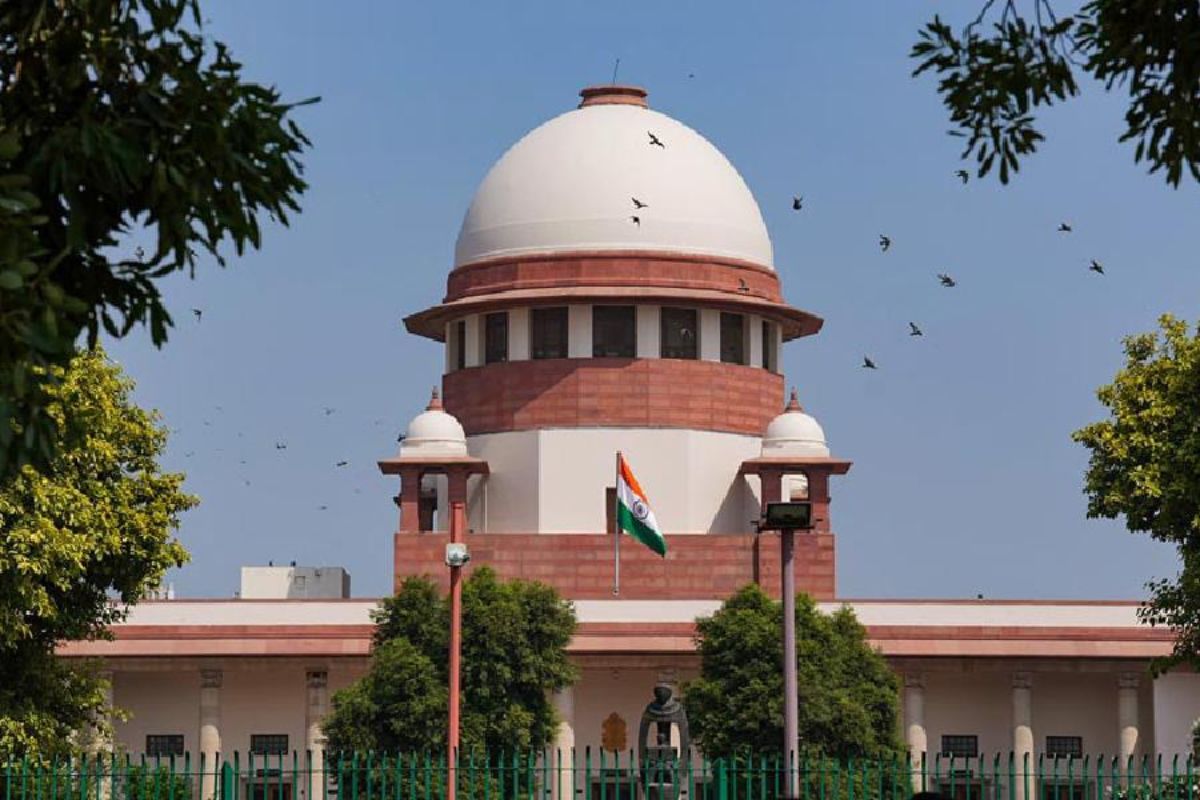Post abrogation of Article 370, PoK can aspire to be part of Kashmir: Rajnath
Singh claimed today the country is in safe hands and you can be assured that the country's borders are safe.
A five-judge bench comprising asked the advocates appearing for contesting parties to add to their pleadings already before the court, if they so require, by July 27 and thereafter there will be total freeze and no further additions to the pleadings would be accepted.

SC quashes proceedings against Karnataka Dy CM Shivakumar in PMLA case
A five-judge constitution bench of the Supreme Court will commence day-to-day hearing from August 2, on a batch of 20 petitions challenging the constitutional validity of the abrogation of Article 370 – that conferred the special status to J&K – and the Jammu and Kashmir Reorganisation Act, 2019, bifurcating the erstwhile state into two Union territories – J&K and Ladakh.
The day-to-day hearing will take place on Tuesday, Wednesday and Thursday and continue on these three days in the subsequent weeks as well. On Monday and Friday, the court will hear fresh and miscellaneous matters. Senior advocate Raju Ramachandran will be leading the arguments for the petitioners.
The five-judge bench comprising Chief Justice D Y Chandrachud, Justice Sanjay Kishan Kaul, Justice Sanjiv Khanna, Justice B R Gavai and Justice Surya Kant asked the advocates appearing for contesting parties to add to their pleadings already before the court, if they so require, by July 27 and thereafter there will be total freeze and no further additions to the pleadings would be accepted.
Advertisement
Chief Justice Chandrachud in the order said that the hearing of the petitions before the constitution bench shall commence on August 2, 10:30 am and then proceed on day to day basis barring miscellaneous days that is Monday and Friday.
Order further said that the written submissions should be filed on or before July 27 and no more submissions shall be allowed thereafter.
The bench asked both the sides to apportion between themselves the time each arguing advocate would take in addressing the issues arising in the challenge. The bench said that it will deal with this aspect when it begins the hearing.
The existing pleadings relating to the abrogation of Article 370 and the bifurcation of J&K into two Union territories – J&K and Ladakh, were filed in the course of the hearing by an earlier five-judge constitution bench which had adjudicated the plea that the challenge to abrogation be heard by a 7-judge bench.
The five-judge bench had on March 2, 2020, declined the plea that challenge to abrogation be heard by a 7-judge bench.
Senior advocate Dushyant Dave told the court that the affidavit by the Central government on the situation in J&K post abrogation of Article 370 and the bifurcation of the State is not relevant to the issues arising in matter relating to the constitutionality of the action. Senior advocate C.U. Singh sought liberty to file a fresh reply to the Centre’s affidavit.
Chief Justice Chandrachud said that the affidavit of the centre has no bearing on the constitutional question before the bench.
The Solicitor General Tushar Mehta told the bench that the Centre’s July 10, 2023, affidavit was to inform the court about post-August 2019 developments in the Union Territories – J&K and Ladakh – and said that it would have no bearing on the constitutional validity of the abrogation of Article 370.
The court permitted the deletion of the names of two petitioners – IAS officer Shah Faesal and human rights activist Shehla Rashid – from the cause list. Since IAS officer Shah Faesal was shown as a lead petitioner and the title of the case too was identified by his name, the bench on a request by Solicitor General Tushar Mehta retitled it as “In re: Article 370 of the Constitution”.
A number of petitions are pending before the top court challenging the scrapping of Article 370 of the constitution and bifurcating the state into two Union Territories.
On August 5, 2019, the Central government announced the revocation of the special status of Jammu and Kashmir granted under Article 370 and split the region into two Union territories.
Besides individual petitioner who have approached the top court on the abrogation of Article 370 and the bifurcation of the State reducing it to a Union Territory, other petitioners include Jammu and Kashmir Peoples Conference, Jammu and Kashmir High Court Bar Association, Peoples Union for Civil Liberties, and the We4st Pakistan Refugees Action Committee Cell – 1947.
Advertisement